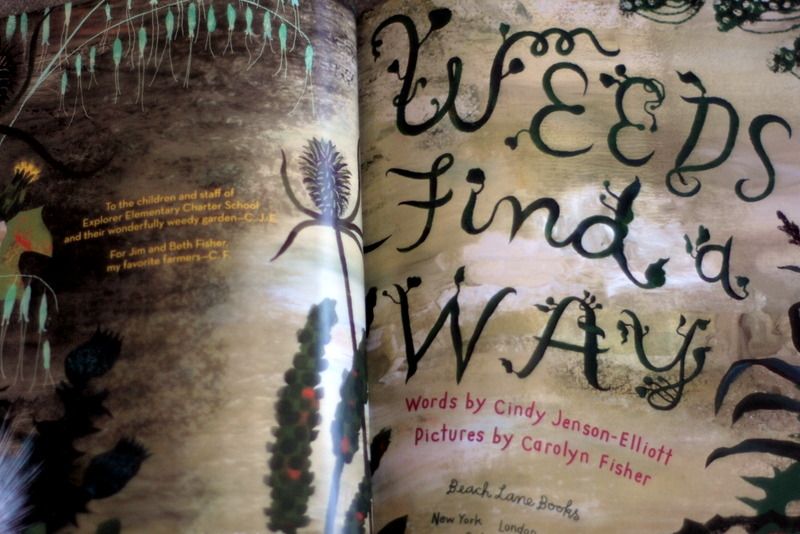
This charming children’s book I was sent to review months ago has reacquainted me with the transformative power of weeds.
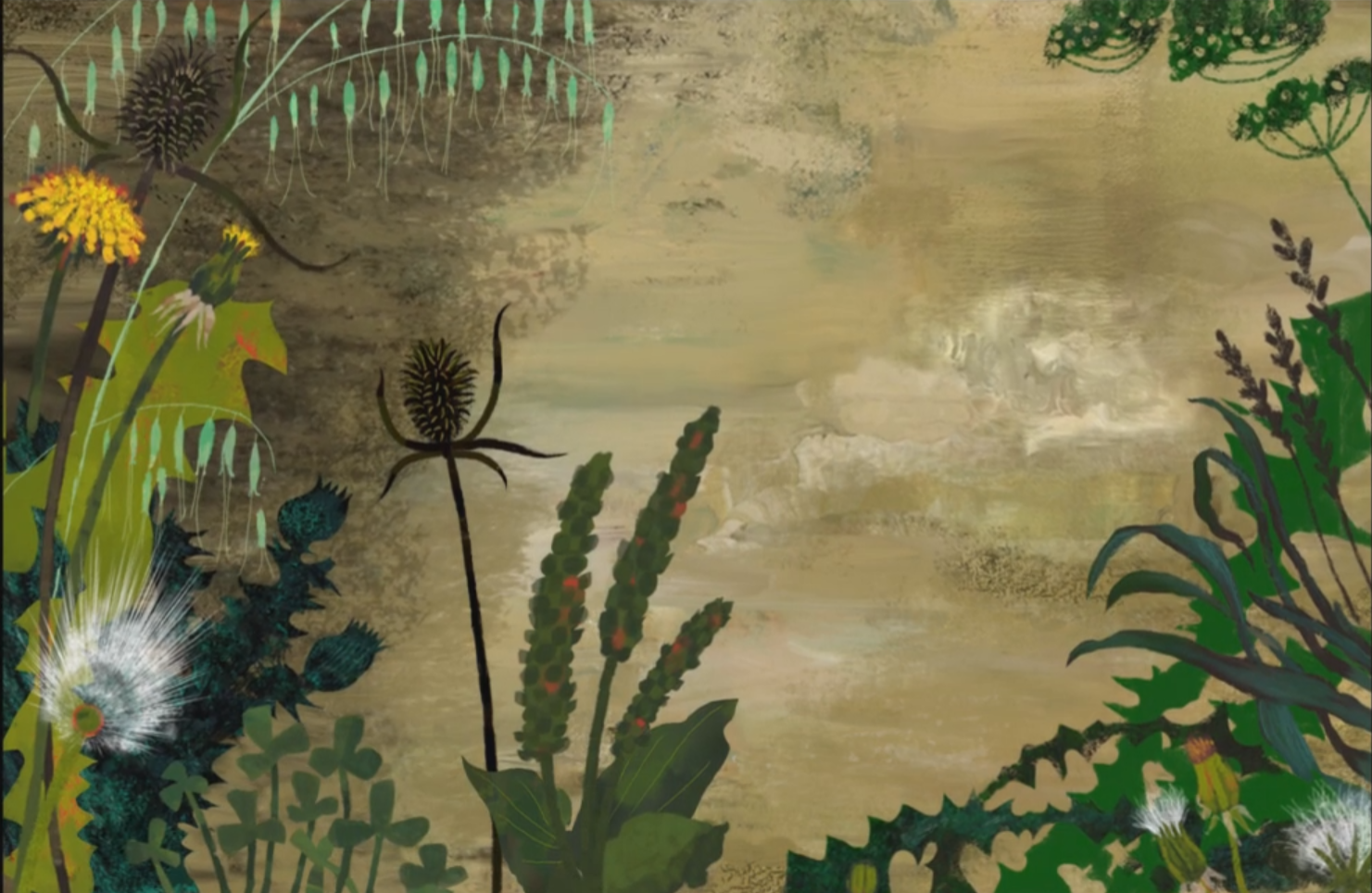
This is a wonderful subject for a children’s book. Weeds are often a child’s first gateway to the natural world. I know they were mine.
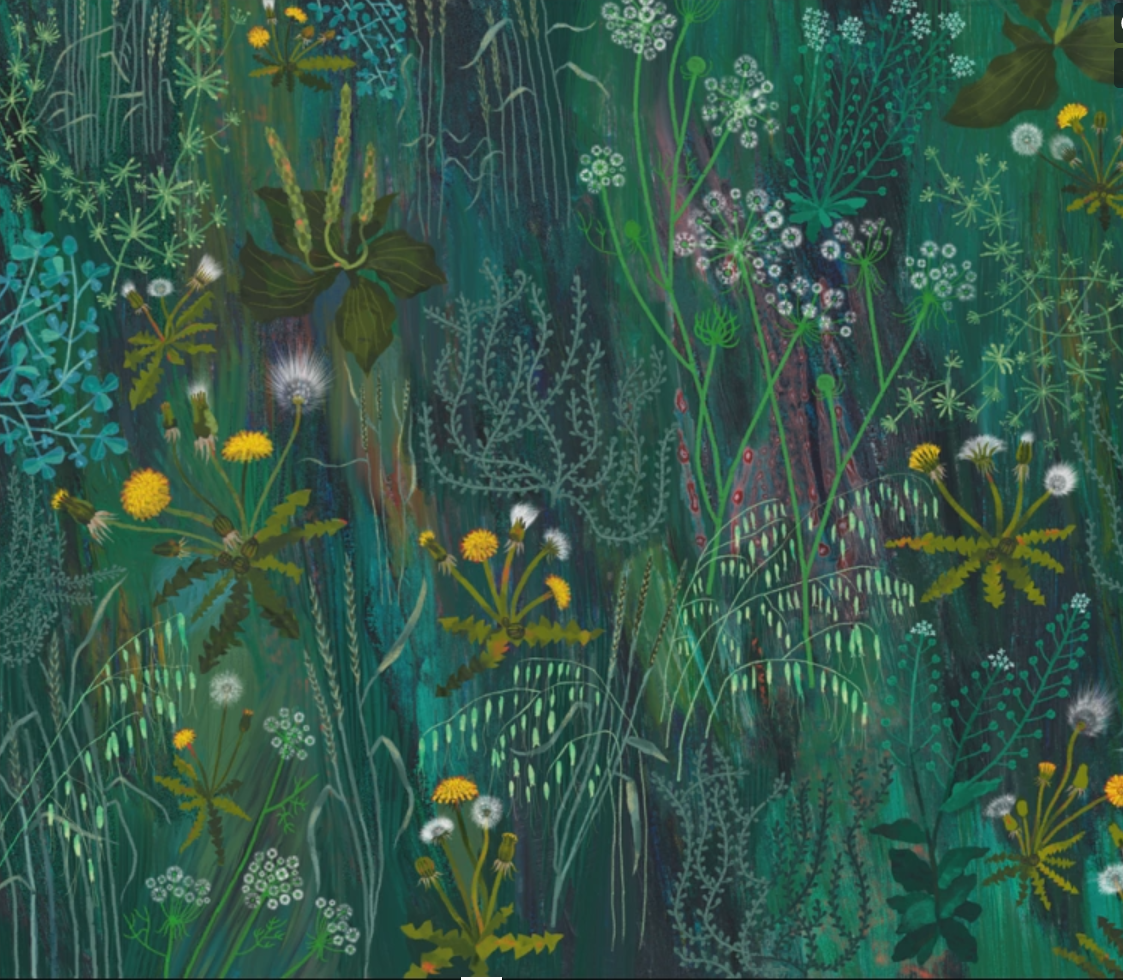
In thinking about the symbiotic magic between kids and weeds, I think I’ve finally pinpointed the source of inspiration that led to a life absorbed in plants. There were no garden heroes, at least in human form. It was the empty field at the end of our street. (It’s now gone condo.) Every spring the winter rains transformed this stubbly pasture into the junglelands where we built forts and labyrinths, captured flags, sorted out the moral dilemmas that kids grapple with, maybe occasionally veering a little too close to Lord of the Flies adventures. My two brothers emerged as the natural leaders of this merry band of meadow gypsies, equitably settling disputes, protecting the weak, stifling the bullies, and I naturally worshipped them for it. The transformative power of that field irresistibly beckoned to us, as we burst out the front doors of a monoculture of depressingly similar, grid-precise tract homes.
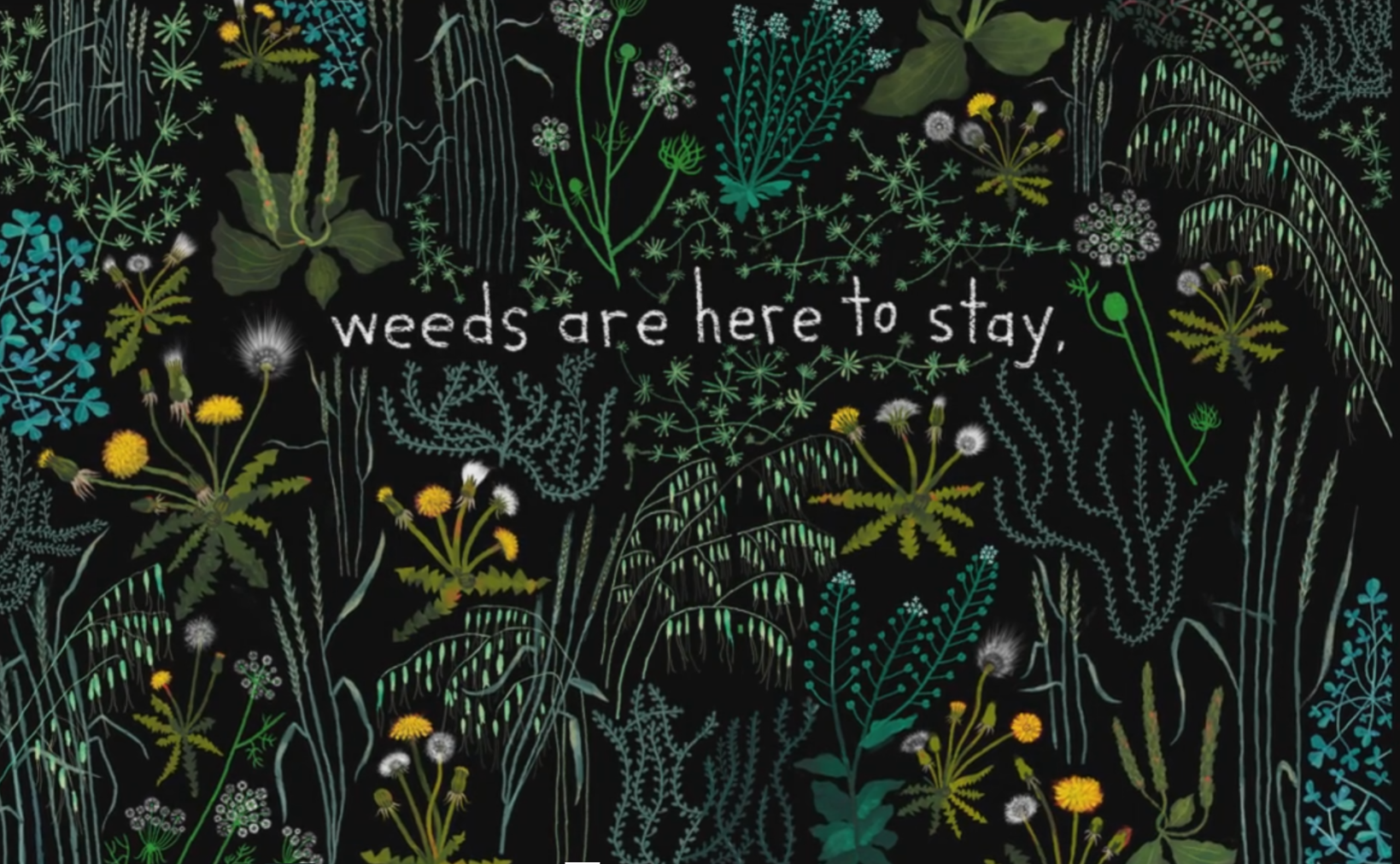
Every spring our kingdom was created anew, emerging in a matter of weeks from barren ground that surged into a wonderland of chest-high weeds and grasses that we heroically beat back and conquered with paths and mazes, enveloped on all sides by the heady creation stirring in that field and in our moral universe. And that’s how weeds shaped and transformed the springs of my childhood and even now the gardens of adulthood. I’m not happy with my garden unless I leave a little room for a surge of transformative growth in spring from opportunistic, weedy plants. Poppies currently fill this role.
Of course, as adults, as garden makers, like everything else, the subject of weeds becomes much more complicated. Weeds are foreign, exotic pests squeezing out disappearing native plants. Childhood is more complicated too. My boys’ childhoods were very different from mine, with little unsupervised time. The winter rains of my childhood are receding into a mythical past too. But there will always be weeds, just as there will always be the freedom to be found in books. One of the things I miss most about living with small children is finding books for them. (Before you know it, they’re 13 and reading Noam Chomsky.) I’m quite certain that Weeds Find A Way would’ve have had a place on our bookshelves. And as with the best children’s books, they are springboards for embroidering tales from your own childhood, of lush fields where the most extraordinary adventures were had.

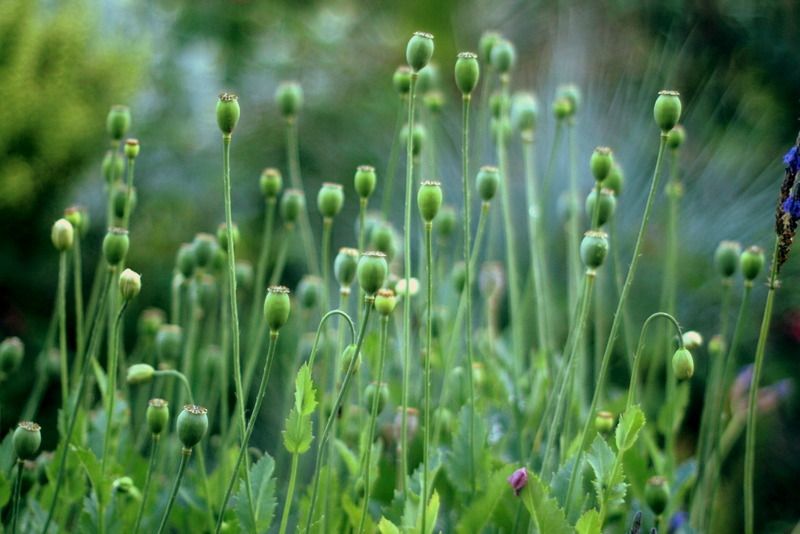
My 13 yr old nephew builds panoramic reconstructions of WWII battles out of Legos. I’d better tell him to cool it on the Chomsky.
That photo of the poppies is awesome. Good enough reason to let the poppy seeds sprout.
What I remember about weeds and childhood was this green plastic tube gadget. You’d drop a white disk of a crumbly chemical down into the tube and fill the tube with water, then you’d walk around the lawn, find dandelions, and punch down on the tube onto the dandelion, A thing at the bottom would squirt some of the disk solution onto the dandelion, and in a couple of days you’d have a dead spot where nothing would grow for a couple of years. Likely it was Agent Orange or the equivalent. Your local field of dreams sounds much better.
Hoov, I’ve got none of those old rube goldberg garden gadget memories, just our little pagan rites of spring in the field. The field was also used by a woman who kept horses in nearby stalls, and she let her Irish wolfhounds run loose occasionally. What a sight that was.
Thanks so much for the wonderful review of Weeds Find a Way! As a garden teacher, environmental educator and parent, I also harbor those memories of playing in the “wilds” around suburbia, and hope that children and parents can recapture it together by looking at the small things around them — like weeds!
Warmly,
Cindy Jenson-Elliott
Cindy, what my neighborhood could do with an open field! Your book is a pleasure, thank you.
Thanks for sharing the weedy book. I love childrens books and even though my children are all but grown, I cannot part with them. (My favorite is “The Oxcart Man”.) The illustrations in this book look wonderful. My older son is now bringing weeds BACK into the garden. He is a self taught forager and every weed now has a name and a purpose. (“Try this one in your next salad.” “This makes a healthy tea”) so the garden is a battle between the tomatoes and his “weeds”.
I just picked this book up for a storytime I was hosting. Fell in love with it.